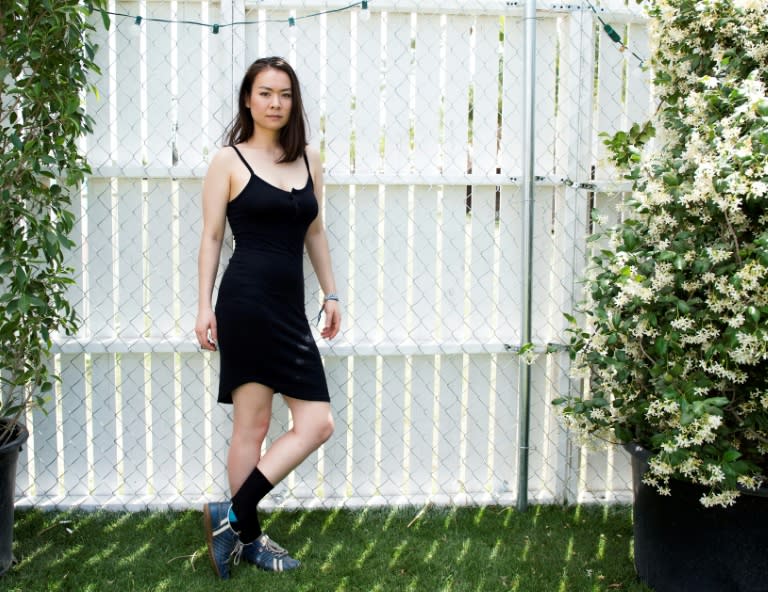Graceful in melancholy, rocker Mitski embraces discomfort
With a voice that glides gracefully from melancholy to rage, Mitski asks through her intricate indie rock about the meaning of home. For the artist herself, she has an answer -- she doesn't have one. Born to a Japanese mother and American father, Mitski spent her childhood in a dozen countries from Africa to Asia to America. As an artist she established herself in New York but feels equally comfortable -- or, perhaps, uncomfortable -- everywhere. "I've stopped wanting a home, I think, because I've been on tour all my life basically," she told AFP after playing at Coachella, the premier music festival that takes place over two weekends in the California desert. "I used to obsess over where is my home -- I need a home, I'm lonely without a home -- but now it's actually very freeing to not have any anchor," she said. Mitski last year released her fourth album "Puberty 2," a metaphor-rich, emotionally searing exploration of identity and longing that figured on several critics' lists of the top albums of 2016. At first listen Mitski has similarities to 1990s alternative rockers such as Liz Phair with a heavy bass leading a jangly guitar. But Mitski -- who plays guitar, bass and piano -- brings a personal intensity more in line with Kate Bush, delivering vocals that can build within seconds from breathy lightness to chilling screams. "Puberty 2" opens with the airy "Happy" as Mitski wonders if a one-night stand can free her from depression. "Your Best American Girl" delves into her upbringing as she questions if she can be American enough for a desired man. "My Body's Made of Crushed Little Stars" is a short burst of passion as Mitski contrasts her undying wanderlust with the drabness of daily life and she envisions herself like the crucified Christ, declaring, "Would you kill me, Jerusalem!" - 'Great propensity for nostalgia' - Mitski describes herself as having a "great propensity for nostalgia" but she rarely returns to the countries her parents took her due to her father's job. "Even if I returned, I won't be welcomed as their own, because I'm still a foreigner. So there is that strange relationship with the places I've lived where they are home to me but I will never be one of them," she said. Her parents collected music from around the world which she said influenced her, if indirectly. She has only performed once in Japan but found her style in line with Japanese pop's emphasis on strong vocal melodies. "Those kinds of sensibilities I still hear in my music," she said. "The chord progressions, and the intervals of the melody, are very Japanese." After a year of touring, Mitski said that she cannot imagine her life before "Puberty 2." "I think I've stopped thinking about the songs. They are now just part of me and when I play them, I am on muscle memory," she said. - Seeking discomfort - For all the drama in her lyrics, Mitski summed up her lifestyle by quoting Flaubert: "Be orderly in your life... so you can be violent and original in your art." "I try to be regimented and try to stay healthy and work out and eat properly and go to sleep. And not get too caught up in the industry in my regular life, so I can save all my expression and energy for my art," she said. But Mitski said she was heading in new directions as she writes new music. "It's very tempting when somebody says they like this about you, to want to do that over and over. And you see that especially with pop-punk bands that made it big in the early 2000s and they're in their 40s now but still dressed the same way," she said. "I remember David Bowie saying something like, 'If you are in an uncomfortable place, then that's where you should be.' "So I've almost been trying to push myself to do something I'm not used to, to try to be uncomfortable. I think it's very dangerous as an artist to be comfortable."




